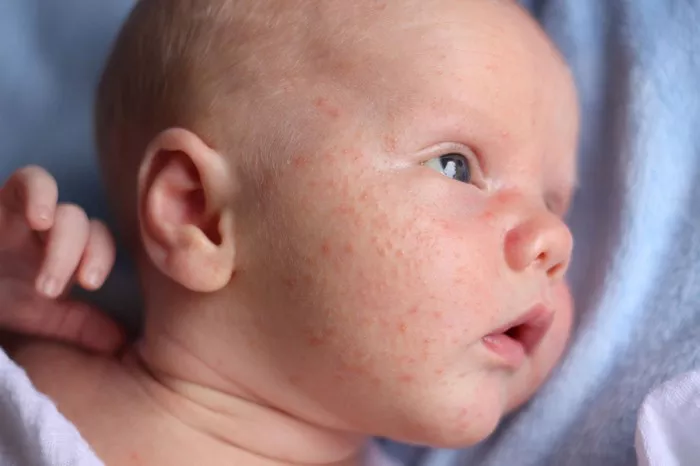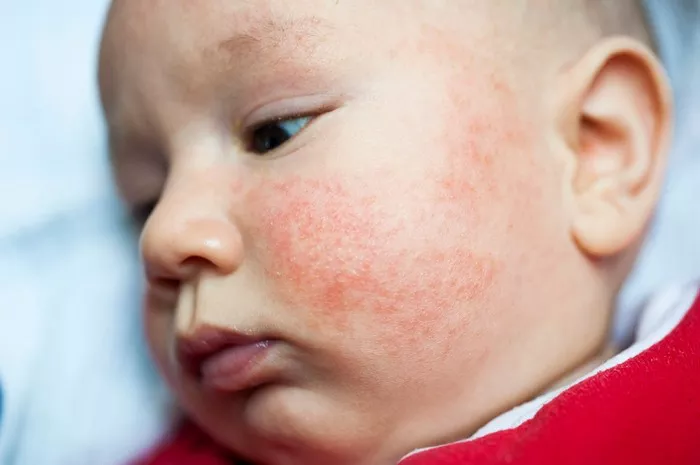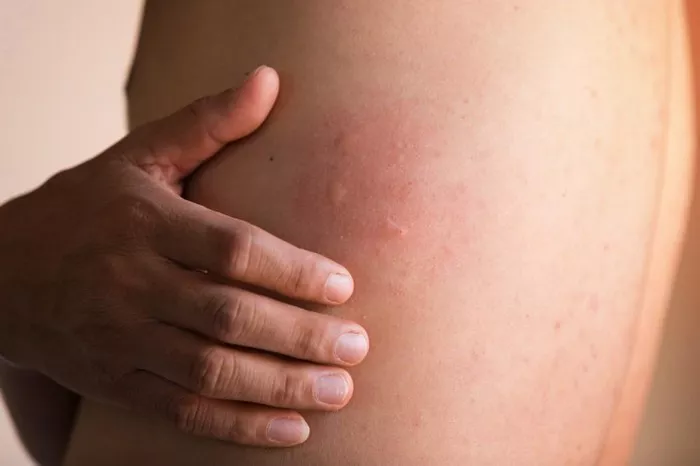Eczema, a chronic inflammatory skin condition, is not uncommon in infants. Among the various forms of eczema, newborn eczema, also known as infantile eczema or atopic dermatitis, presents a unique set of challenges for both parents and healthcare providers. Recognizing the symptoms of newborn eczema is crucial for early intervention and management. In this article, we delve into what newborn eczema looks like, its potential causes, and strategies for relief.
What is Newborn Eczema?
Newborn eczema typically appears within the first few months of life, often presenting as red, dry, and itchy patches on the skin. It is considered a form of atopic dermatitis, a chronic condition characterized by inflammation and hypersensitivity of the skin. While the exact cause of newborn eczema remains elusive, it is believed to result from a combination of genetic and environmental factors.
Recognizing the Symptoms
The appearance of newborn eczema can vary from one infant to another, but there are common symptoms to look out for:
1. Redness: Affected areas of the skin may appear red or inflamed, indicating underlying inflammation.
2. Dryness: The skin may feel dry, rough, or scaly to the touch, often accompanied by flaking or peeling.
3. Itching: Infants with eczema may exhibit signs of discomfort, frequently scratching or rubbing the affected areas.
4. Raised Bumps or Blisters: In some cases, newborn eczema may manifest as small raised bumps or fluid-filled blisters, particularly on the face, scalp, or extremities.
5. Crusting and Oozing: Severe cases of eczema may lead to crusting and oozing of the affected skin, which can increase the risk of infection.
Common Sites of Newborn Eczema
While newborn eczema can occur anywhere on the body, certain areas are more commonly affected:
1. Face: The cheeks, forehead, and chin are frequent sites of newborn eczema, often characterized by redness and dryness.
2. Scalp: Infants may develop eczema on their scalp, presenting as crusty patches or scaling similar to cradle cap.
3. Extremities: The arms, legs, and joints, such as the elbows and knees, are prone to eczema flare-ups, with symptoms ranging from redness to thickened skin.
4. Neck and Chest: Eczema may also affect the neck and chest area, causing discomfort and irritation for the infant.
Distinguishing Newborn Eczema from Other Conditions
While newborn eczema shares similarities with other skin conditions, such as diaper rash or cradle cap, several key features can help distinguish it:
1. Persistent Symptoms: Unlike diaper rash, which typically resolves within a few days, newborn eczema tends to persist or recur over time.
2. Family History: Infants with a family history of eczema, asthma, or allergic rhinitis are at higher risk of developing newborn eczema.
3. Distribution of Rash: Eczema often presents in characteristic patterns, such as the flexural areas (inner elbows and knees), whereas diaper rash is confined to the diaper area.
4. Severity of Itching: The intense itching associated with eczema sets it apart from other skin conditions, leading to scratching and potential skin damage.
Potential Triggers of Newborn Eczema
While the exact cause of newborn eczema remains unclear, certain factors can trigger or exacerbate symptoms:
1. Allergens: Exposure to allergens, such as dust mites, pet dander, or certain foods, can trigger an immune response and worsen eczema symptoms.
2. Irritants: Harsh soaps, detergents, fragrances, and fabrics can irritate the delicate skin of infants, leading to eczema flare-ups.
3. Climate: Dry or cold weather conditions can sap moisture from the skin, contributing to dryness and exacerbating eczema symptoms.
4. Stress: Emotional stress or changes in routine can impact the immune system and trigger eczema flare-ups in susceptible infants.
5. Microbial Infections: Bacterial or viral infections can exacerbate eczema symptoms and lead to complications if left untreated.
Seeking Relief for Newborn Eczema
Managing newborn eczema requires a multifaceted approach aimed at reducing inflammation, relieving itching, and preventing flare-ups. Here are some strategies for providing relief:
1. Hydration: Keep the skin well-hydrated by applying emollients or moisturizers regularly, especially after bathing, to prevent dryness and itching.
2. Gentle Cleansing: Use mild, fragrance-free cleansers and avoid hot water when bathing your infant to prevent further irritation of the skin.
3. Soft Fabrics: Dress your baby in soft, breathable fabrics, such as cotton, and avoid tight-fitting clothing that can rub against the skin and exacerbate eczema.
4. Avoid Triggers: Identify and avoid potential triggers of eczema flare-ups, such as allergens, harsh chemicals, and extreme temperatures.
5. Topical Treatments: Over-the-counter or prescription corticosteroid creams or ointments may be recommended by a healthcare provider to reduce inflammation and itching during flare-ups.
6. Antihistamines: In cases of severe itching, oral antihistamines may be prescribed to alleviate discomfort and promote better sleep for both the infant and parents.
7. Medical Supervision: Regular follow-up with a pediatrician or dermatologist is essential to monitor the infant’s eczema and adjust treatment as needed.
Conclusion
Newborn eczema can be distressing for both infants and parents, but early recognition of symptoms and proactive management can significantly improve outcomes. By understanding what newborn eczema looks like, identifying potential triggers, and implementing appropriate relief measures, parents can help alleviate their infant’s discomfort and promote healthy skin. Consultation with a healthcare provider is paramount for tailored treatment strategies and ongoing support in managing newborn eczema effectively. With patience, diligence, and the right support, it is possible to navigate the challenges of newborn eczema and provide relief for your precious little one.


























